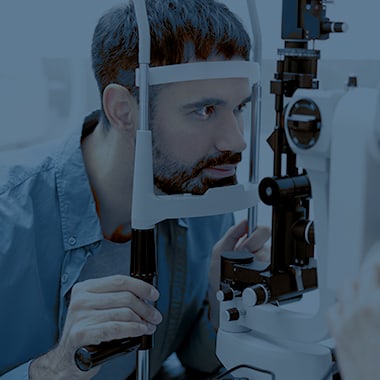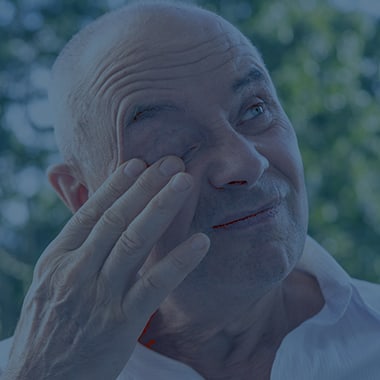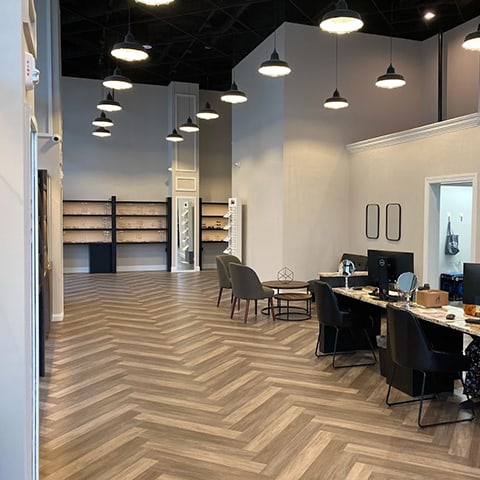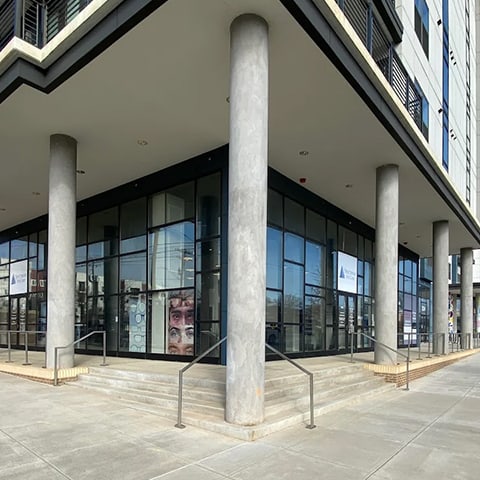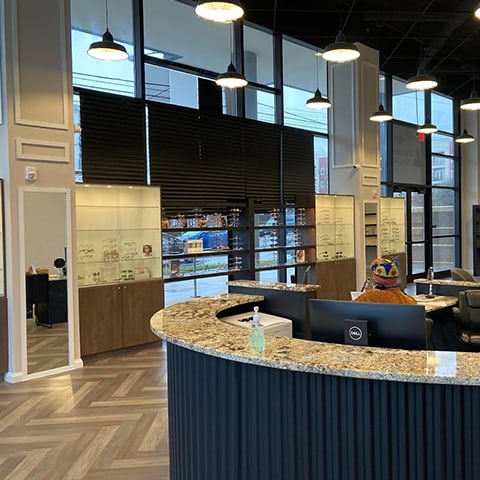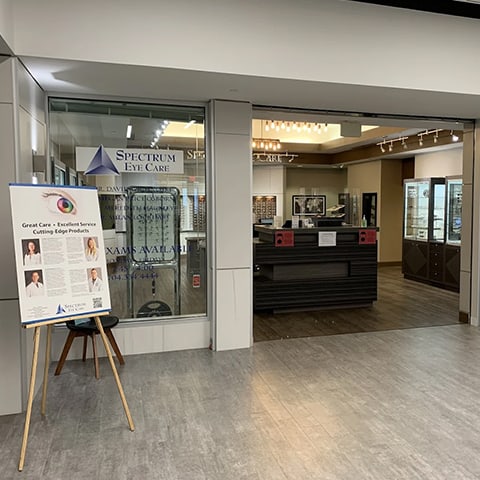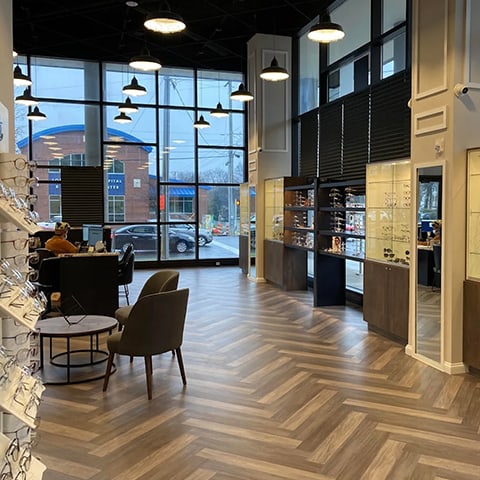Relief for Gritty, Tired, & Irritated Eyes
Are your eyes constantly dry, gritty, or sore? Do they feel tired after hours at a computer or even after a short time outdoors? Dry eye disease is a common condition caused by a problem with your tears, often leaving the surface of your eyes feeling sore and uncomfortable.
During your dry eye assessment, we aim to address the symptoms while also identifying the root cause of your discomfort. Our holistic, patient-first approach utilizes dry eye-specific diagnostic technology, including the Oculus Keratograph 5M, to evaluate your tear film, assess your symptoms, and develop a personalized care plan.
Whether you need gentle in-office solutions like iLux Thermal Pulsation or lifestyle guidance and soothing at-home care, our team is here to help you regain clearer, more comfortable vision.
Request AppointmentIs It Allergies or Dry Eye? Understanding the Difference
Charlotte’s spring and fall are notorious for allergy symptoms like watery, red, or itchy eyes. While these symptoms may resemble those of dry eye, they stem from different causes. Allergies are your immune system’s response to irritants like pollen, while dry eye occurs when your tears fail to lubricate your eyes properly.
Our comprehensive exams make it possible to differentiate between allergies and dry eye. If pollen or other allergies are taking a toll on your well-being, we’ll provide personalized recommendations, including when to see an allergist.
What Is Dry Eye?
Dry eye is a condition that happens when your eyes can’t maintain a healthy, balanced tear film.
The tear film, composed of 3 key layers (oil, water, and mucus), helps keep your eyes comfortable and protected. Your meibomian glands, located along the edge of your eyelids, play a crucial role in producing the oily layer of the tear film, which helps prevent tears from evaporating too quickly.
If these glands aren’t functioning properly or your tear film balance is disrupted, it can lead to dryness, irritation, and discomfort. Dry eye may be mild or more severe, but detecting and managing it early can help prevent worse symptoms later.
What Makes Dry Eye Worse?
Dry eye can develop for several reasons, and understanding these triggers is key to managing your symptoms. You may find certain factors worsen your symptoms, including:
- Working at a computer all day
- Air-conditioned or heated environments
- Certain medications or underlying health conditions
- Recent laser eye surgery
- Charlotte’s seasonal allergies
Pinpointing the causes of your dry eye makes it possible to recommend more effective treatments. That’s where we come in.
Comprehensive Dry Eye Diagnosis for Long-Lasting Results
We use dry eye-specific tools and a integrative understanding of your health to identify the root causes of your dry eye symptoms. During your consultation, we will typically:
- Listen to Your Concerns: Your symptoms are unique, and understanding them is the first step to finding effective relief.
- Perform a Detailed Exam: Using the Oculus Keratograph 5M, we assess your tear film, measure your tear production, and take digital photos (called meibography) to evaluate the health of your meibomian glands.
- Look Beyond the Eyes: Sometimes dry eye stems from health conditions or environmental factors. We take your overall health into account to make sure we recommend solutions tailored to you.
Evidence-Based Treatments for Dry Eye Relief
Everyone’s dry eye needs are unique, so we offer a range of treatments designed to provide effective and long-lasting results.
Your treatment doesn’t stop here. If needed, we’ll suggest additional lifestyle adjustments and, if appropriate, connect you with Dr. Embrey at Revision Health, who can advise on further testing that may uncover other factors affecting your wellness.
In-Office Dry Eye Treatments
When at-home dry eye solutions aren’t enough, we may recommend a combination of the following options:
-
- iLux Thermal Pulsation: Targets meibomian gland dysfunction (MGD) by gently heating and massaging your glands to restore healthy oil flow to your tear film.
-
- MDElite Infinity Pro Light Therapy: A gentle, noninvasive treatment that uses precision light energy to reduce inflammation, support meibomian gland function, and promote overall eyelid health.
-
- Punctal Plugs: Tiny, biocompatible devices inserted into your tear ducts to retain moisture and keep your eyes hydrated for longer.
At-Home Dry Eye Solutions
For regular relief of your symptoms and to support the effects of in-office treatments, we may recommend one or more of the following dry eye management options:
- Eye Masks: Comfortable and easy-to-use warm compresses to soften hardened oils in your meibomian glands.
- Eyelid Sprays: To help maintain clean, healthy eyelids to avoid irritation.
- Prescription Eye Drops: Relieve inflammation and boost hydration for immediate comfort.
- Omega-3 Supplements: Support your tear quality and overall eye health from within with dry eye-formulated supplements.
- Preservative-Free Eye Drops: Formulated to be used frequently for dry eye relief without irritating preservatives.
OptiLIGHT by Lumenis
OptiLIGHT by Lumenis uses intense pulsed light (IPL) to treat inflammation caused by meibomian gland dysfunction (MGD), a leading cause of dry eye. This FDA-approved treatment gently pulses light below the eyes to reduce inflammation, improve oil gland function, and support more stable tears.
The procedure is quick, noninvasive, and typically done as a series. Many patients notice relief from burning, irritation, and redness after just a few sessions. We use OptiLIGHT to help manage chronic dry eye at its source, so you can enjoy clearer, more comfortable vision.
OptiLIFT by Lumenis
OptiLIFT is a noninvasive treatment that combines dynamic muscle stimulation (DMSt) and radiofrequency (RF) to target lower eyelid laxity and support healthy blinking. By gently stimulating the muscles and improving circulation, OptiLIFT helps restore proper eyelid function, which is essential for tear flow and long-term dry eye relief.
This in-office treatment is designed to offer subtle skin-tightening benefits, helping reduce puffiness and fine lines around the eyes. It’s a comfortable procedure often paired with other therapies to support clearer, more comfortable vision.
Begin Your Journey to Comfort
Don’t resign yourself to discomfort from dry eye. At Spectrum Eye Care, we use innovative diagnostics, personalized treatments, and a compassionate approach to help our Charlotte neighbors find relief from dry eye.
Relief starts with understanding what your eyes need. Book a consultation today, and take the first step toward healthier, happier eyes.
Request AppointmentFind Your Nearest Spectrum Eye Care Location
South End
- Phone or Text: 704-585-8595
- Email: southendoffice@spectrumeyecarenc.com
- 2520 South Blvd Suite 108-A
- Charlotte, NC 28203
Hours
- Monday: 8:45 AM – 5:00 PM
- Tuesday: 8:45 AM – 5:00 PM
- Wednesday: 8:45 AM – 5:00 PM
- Thursday: 8:45 AM – 5:00 PM
- Friday: 8:45 AM – 5:00 PM
- Saturday: Select Saturdays
- Sunday: Closed
-
We’re at the corner of South Blvd. and Remount Rd., across from Mac’s Speed Shop.
Uptown Charlotte
- Phone or Text: 704-334-4444
- Email: uptownoffice@spectrumeyecarenc.com
- 200 South College St, Suite 307
- Charlotte, NC 28202
Hours
- Monday: 7:45 AM – 4:00 PM
- Tuesday: 7:45 AM – 4:00 PM
- Wednesday: 7:45 AM – 4:00 PM
- Thursday: 7:45 AM – 4:00 PM
- Friday: 7:45 AM – 4:00 PM
- Saturday: Closed
- Sunday: Closed
-
We’re happy to validate your parking from the 200 S College St./Overstreet Mall parking garage.
South Charlotte / Colony Road
- Phone or Text: 704-543-9000
- Email: colonyoffice@spectrumeyecarenc.com
- 7615 Colony Rd, Suite 105
- Charlotte, NC 28226
Hours
- Monday: 8:45 AM – 5:00 PM
- Tuesday: 8:45 AM – 5:00 PM
- Wednesday: 8:45 AM – 5:00 PM
- Thursday: 8:45 AM – 5:00 PM
- Friday: 8:45 AM – 5:00 PM
- Saturday: Select Saturdays
- Sunday: Closed
-
We have plenty of free parking just outside the building.
Our Eyewear Brands








Our Google Reviews
South Charlotte /
Colony Office
Uptown
Charlotte
Charlotte
South End
Our Blogs
How IPL Treats Sun Damage and Age Spots Around Your Eyes
AestheticsThe skin around your eyes is one of the first places to show signs of sun exposure. Years spent enjoying the sunny days in Charlotte can leave behind unwanted reminders, such as dark spots, fine lines, and an uneven skin tone that you didn’t have before. At Spectrum Eye Care, we know these changes are […]
Signs Your Child Might Need Glasses
MyopiaYou may notice your child squinting to see the television or rubbing their eyes after a short time with a book. It can be hard to know if these are just passing habits or signs that they are struggling to see clearly. These small clues can be your first indication that it’s time to connect […]
How to Manage Dry Eye During the Winter Months
Dry EyeYou step outside on a crisp winter morning, and within minutes your eyes start watering. Then you head indoors where the heating system makes your eyes feel scratchy and uncomfortable. Winter can turn even mild dry eye symptoms into daily discomfort that affects everything from your work to your sleep. Managing dry eye during winter […]
How IPL Treats Sun Damage and Age Spots Around Your Eyes
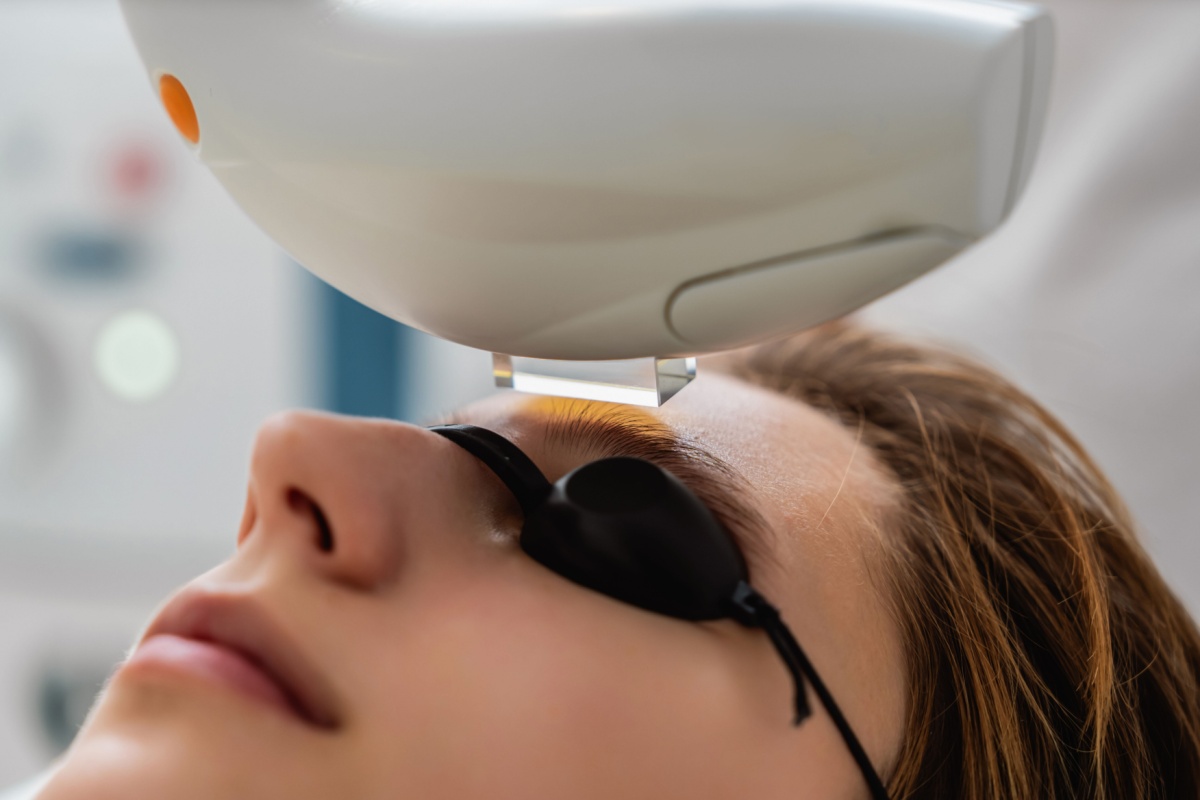
The skin around your eyes is one of the first places to show signs of sun exposure. Years spent enjoying the sunny days in Charlotte can leave behind unwanted reminders, such as dark spots, fine lines, and an uneven skin tone that you didn’t have before. At Spectrum Eye Care, we know these changes are […]
Signs Your Child Might Need Glasses
You may notice your child squinting to see the television or rubbing their eyes after a short time with a book. It can be hard to know if these are just passing habits or signs that they are struggling to see clearly. These small clues can be your first indication that it’s time to connect […]
How to Manage Dry Eye During the Winter Months
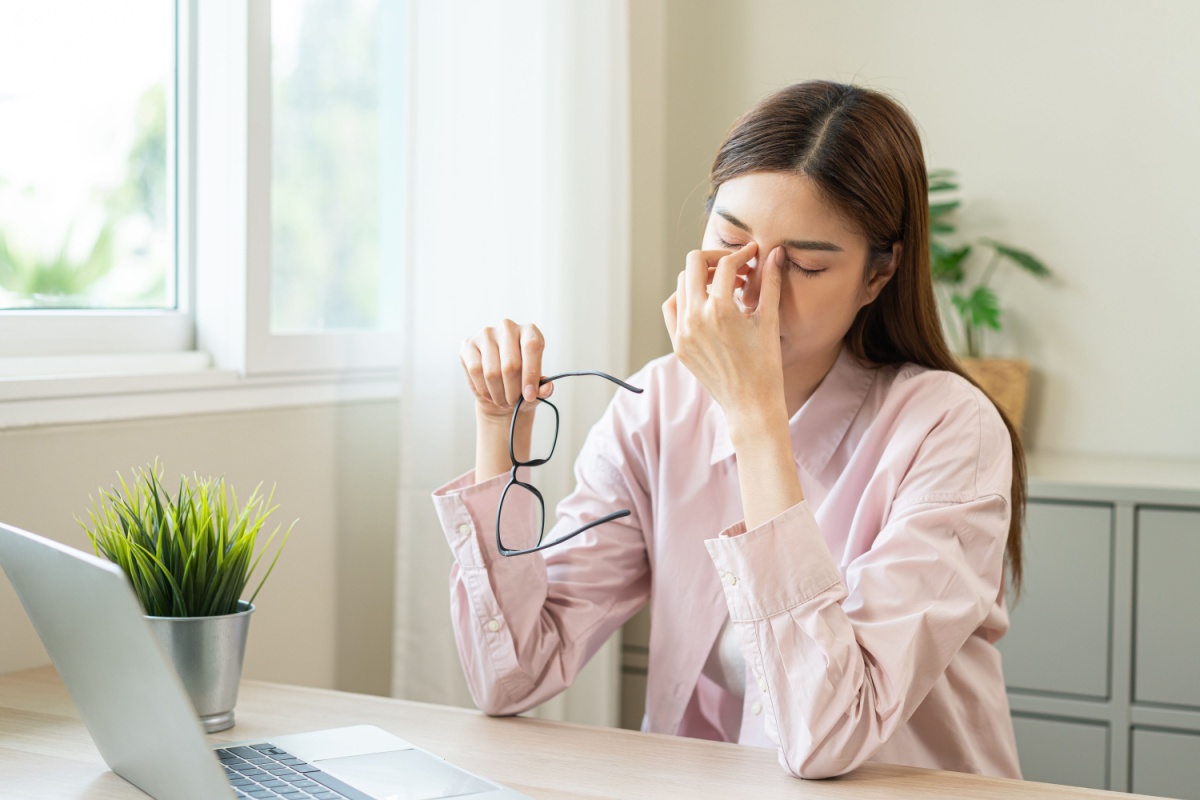
You step outside on a crisp winter morning, and within minutes your eyes start watering. Then you head indoors where the heating system makes your eyes feel scratchy and uncomfortable. Winter can turn even mild dry eye symptoms into daily discomfort that affects everything from your work to your sleep. Managing dry eye during winter […]


